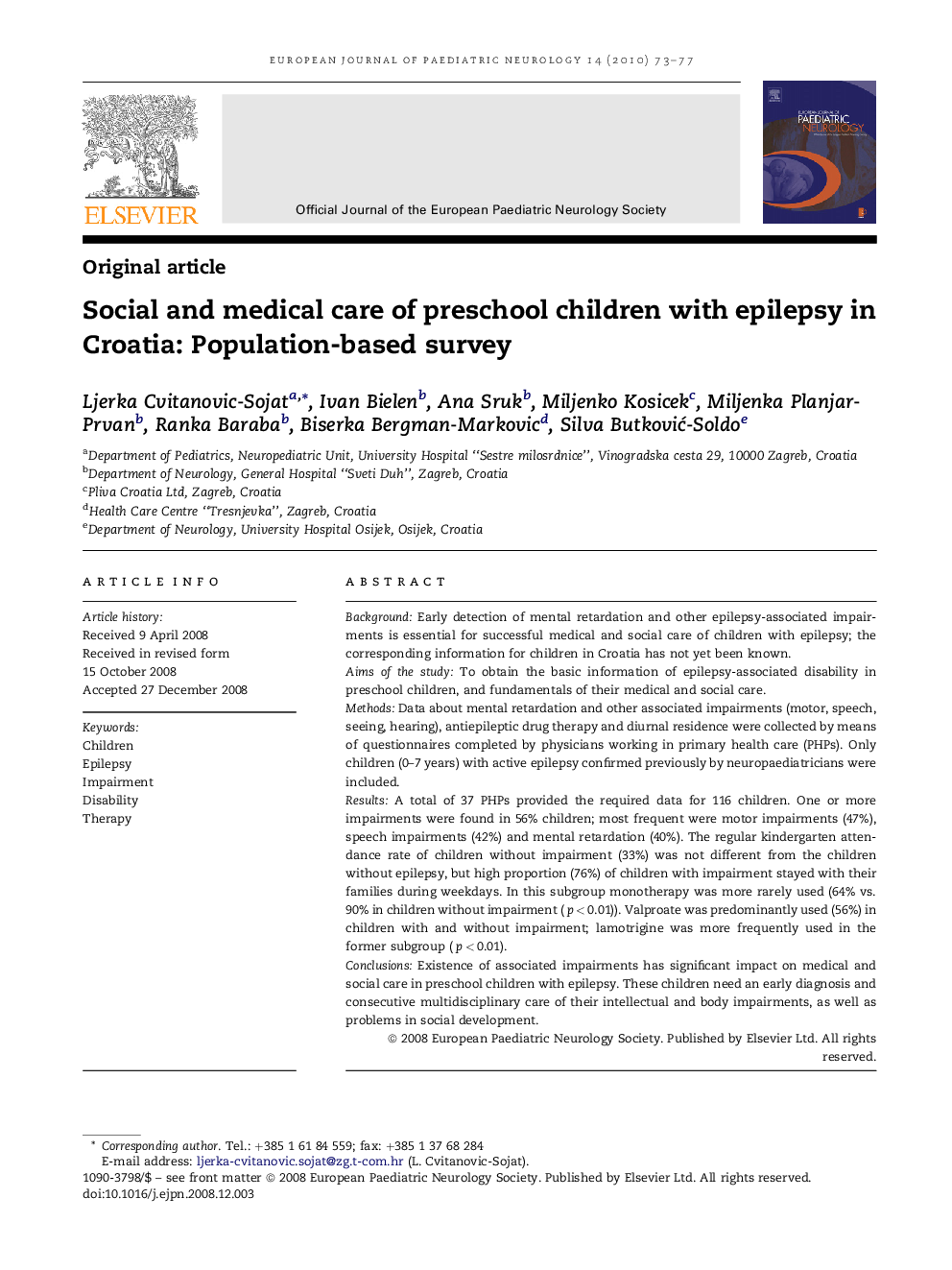| Article ID | Journal | Published Year | Pages | File Type |
|---|---|---|---|---|
| 3054319 | European Journal of Paediatric Neurology | 2010 | 5 Pages |
BackgroundEarly detection of mental retardation and other epilepsy-associated impairments is essential for successful medical and social care of children with epilepsy; the corresponding information for children in Croatia has not yet been known.Aims of the studyTo obtain the basic information of epilepsy-associated disability in preschool children, and fundamentals of their medical and social care.MethodsData about mental retardation and other associated impairments (motor, speech, seeing, hearing), antiepileptic drug therapy and diurnal residence were collected by means of questionnaires completed by physicians working in primary health care (PHPs). Only children (0–7 years) with active epilepsy confirmed previously by neuropaediatricians were included.ResultsA total of 37 PHPs provided the required data for 116 children. One or more impairments were found in 56% children; most frequent were motor impairments (47%), speech impairments (42%) and mental retardation (40%). The regular kindergarten attendance rate of children without impairment (33%) was not different from the children without epilepsy, but high proportion (76%) of children with impairment stayed with their families during weekdays. In this subgroup monotherapy was more rarely used (64% vs. 90% in children without impairment (p < 0.01)). Valproate was predominantly used (56%) in children with and without impairment; lamotrigine was more frequently used in the former subgroup (p < 0.01).ConclusionsExistence of associated impairments has significant impact on medical and social care in preschool children with epilepsy. These children need an early diagnosis and consecutive multidisciplinary care of their intellectual and body impairments, as well as problems in social development.
